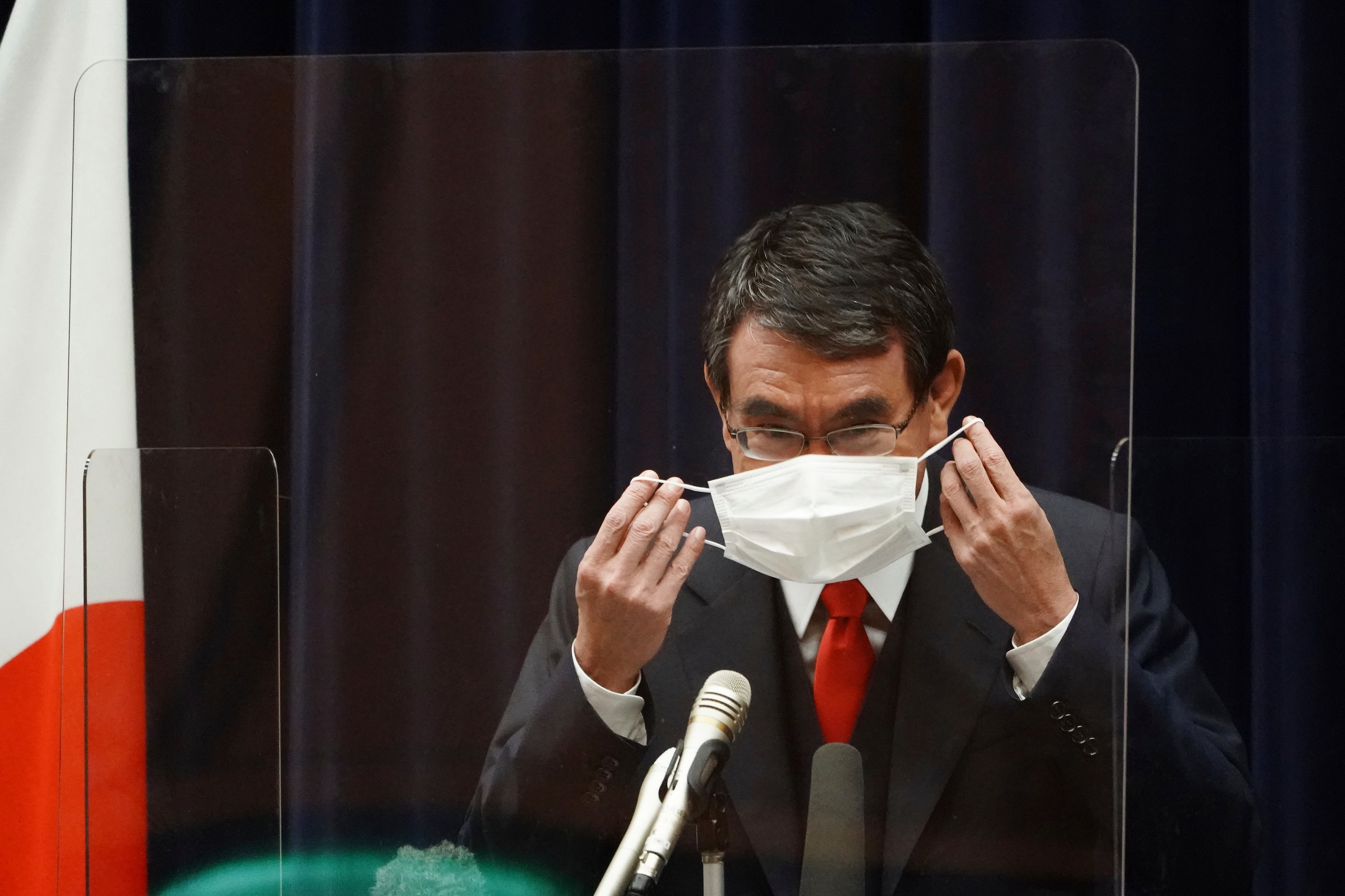Japan minister says supply will determine vaccine progress
Japan will inoculate a group of health workers on Wednesday as it belatedly begins a massive coronavirus vaccination drive, with progress depending on the availability of vaccine supplies from Europe

Your support helps us to tell the story
From reproductive rights to climate change to Big Tech, The Independent is on the ground when the story is developing. Whether it's investigating the financials of Elon Musk's pro-Trump PAC or producing our latest documentary, 'The A Word', which shines a light on the American women fighting for reproductive rights, we know how important it is to parse out the facts from the messaging.
At such a critical moment in US history, we need reporters on the ground. Your donation allows us to keep sending journalists to speak to both sides of the story.
The Independent is trusted by Americans across the entire political spectrum. And unlike many other quality news outlets, we choose not to lock Americans out of our reporting and analysis with paywalls. We believe quality journalism should be available to everyone, paid for by those who can afford it.
Your support makes all the difference.Japan will inoculate a group of health workers on Wednesday as it belatedly begins a massive coronavirus vaccination drive, with progress depending on the availability of vaccine supplies from Europe Japan's vaccine minister said.
Taro Kono the Cabinet administrative minister who is tasked with the vaccine mission, considered crucial to Japan's hosting of the Olympics this summer, also said Tuesday that he is determined to obtain special syringes that can get six doses from a vial instead of five. Standard Japanese-made syringes retain a small amount.
"It’s a valuable vaccine, I’m determined to get six doses out of a vial, no matter what,” Kono said.
On Sunday, the government formally issued the country's first COVID-19 vaccine approval, for shots developed and supplied by Pfizer Inc. that have already been used in many other countries since December.
Japan fell behind after it asked Pfizer to conduct clinical tests with Japanese people in addition to the company's earlier tests in six other nations. Kono said it was necessary to address the concerns of many Japanese about safety in a country known for low vaccine confidence.
Supplies of imported vaccines are a major concern because of supply shortages and restrictions in Europe, where many are manufactured, Kono said.
A first shipment of the Pfizer vaccine that arrived last Friday is enough for 40,000 doctors and nurses from 100 selected hospitals across the country, he said. Half will participate in a health study by keeping daily records of their condition for seven weeks after their first of two shots.
Inoculations of 3.7 million more health workers will begin in March, followed by about 36 million people aged 65 and older starting in April. People with underlying health issues, as well as caregivers at nursing homes and other facilities, will be next, before the general population receives its turn.
“I hope many people will get the vaccine with an accurate understanding of the benefits and risks,” Kono said.